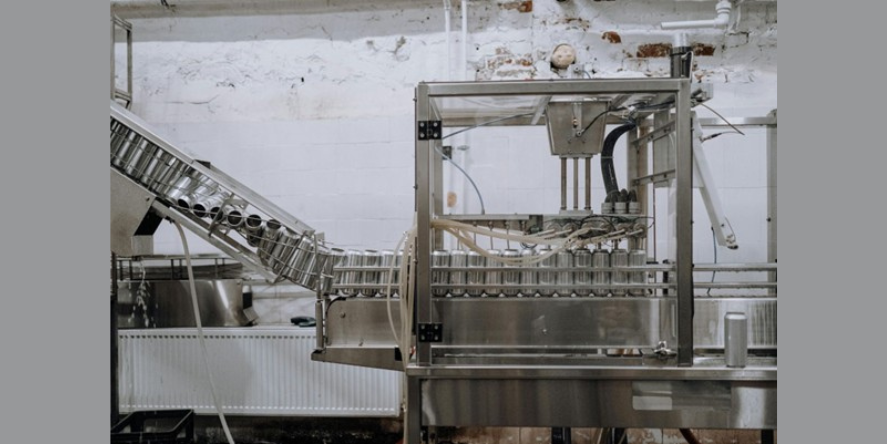Manufacturing has changed a lot over the years. Big factories used to rule the game. They made huge batches of products. Smaller brands couldn’t keep up. But things are shifting. Technology is helping even the little guys get in the game.
Why MOQ Still Matters
MOQ stands for Minimum Order Quantity. It’s the smallest number of units a manufacturer agrees to produce. For years, MOQ manufacturing meant large orders. If you didn’t order thousands, factories didn’t want your business. This was a problem for small brands.
Now things are different. Thanks to automation and smarter tools, MOQ is starting to shrink. More factories are open to small-batch jobs. That’s great news for startups and niche brands. You don’t need to spend a fortune just to test your product.
1) What Industry 4.0 Is Really About
Industry 4.0 is more than a buzzword. It’s a shift in how manufacturing works. It mixes robotics, smart machines, and data. This combo helps factories become faster and more flexible. Machines now talk to each other. Systems can adjust without waiting on a human.
This tech isn’t just for big companies. Smaller operations are getting in on it too. With the right setup, a small factory can handle quick changes. It can make a few hundred units one day and something totally different the next. That’s a big win for low-MOQ manufacturing.
2) Automation Makes Small Runs Possible
The old setup made it hard to switch between products. Machines had to be reset by hand. That took time. It cost money. Now, automation handles a lot of those tasks. Tools like computer-controlled machines can swap designs fast.
You don’t need a new setup every time you switch products. That makes short runs easier and cheaper. It also helps with mistakes. If there’s a problem in production, the system can catch it early. That saves waste and money.
3) Customization Is Now Within Reach
Buyers want more choices. They want products that feel personal. But custom work used to cost a lot. That’s where Industry 4.0 comes in. Automation helps tailor products without slowing things down.
Factories can now take custom orders and still meet deadlines. Machines follow digital patterns. Those patterns can change quickly. So one machine can make ten unique items in a row. This changes the game for brands that want to offer variety.
4) Data Plays a Big Role
One of the best parts of Industry 4.0 is real-time data. Machines send updates as they work. Managers can track progress every step of the way. This helps with quality and speed.
You know when something goes off track. You fix it right away. That’s perfect for MOQ manufacturing. Smaller batches don’t leave room for errors. You need every piece to count. Data helps make that happen.
5) Supply Chains Are Getting Smarter
Factories don’t work alone. They need parts and materials. Before, delays were common. One slow shipment could mess up the whole schedule. Now, smart systems keep an eye on the supply chain.
When a delay happens, the system can adjust. It finds new routes. It changes the production plan. That keeps things moving. For small-batch jobs, that kind of speed is key. You don’t have time to wait around.
6) It’s Good for the Environment Too
Smaller runs mean less waste. Automation helps make things more efficient. You use only what you need. You don’t end up with piles of unsold goods. That’s better for the planet and better for your wallet.
Also, machines today use energy more wisely. They shut off when not in use. They adjust to save power. That’s another plus for small factories trying to go green.
7) Challenges Are Still There—but Easier to Handle
Even with all the new tech, small-batch production still comes with challenges. Not every factory has made the switch. Some are still stuck in old systems. You might need to search a bit to find the right partner.
Training is another factor. Some teams need time to learn the systems. That can slow things down at first. But the good part is—once the system is in place, things run smoother.
There’s also the issue of cost. Industry 4.0 tools aren’t free. Upgrading machines or adding sensors can get pricey. But more factories are seeing it as a long-term investment. It saves time, improves quality, and brings in more business. Over time, the benefits usually outweigh the costs.

Final Thoughts
MOQ manufacturing used to be a barrier. If you couldn’t afford big orders, you were stuck. But now, with Industry 4.0, the rules are changing. Small-batch production is easier. It’s faster. It’s smarter.
Technology is making it happen. Automation, data, and flexible tools are all working together. If you’re a small brand or just starting out, this is your moment. You can create products without the old limits. That’s the power of Industry 4.0.
Blog received via Mail










